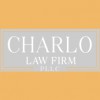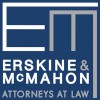
The first step to freedom from debt is knowing your options. Use our online debt evaluation form to request a free, no-obligation bankruptcy consultation. I am a bankruptcy attorney located in Longview, Texas. I have been practicing law for over 35 years. Cross Stone Law is focused on individual and small business bankruptcy. No matter where you are in life or what you are struggling with financially, you can get back on your feet.
If you are overwhelmed with debt, let me help you develop a long-term strategy to rebuild. The Snowball Method A popular method for paying down debt is known as the snowball method, introduced by Dave Ramsey. This method focuses on paying off the smallest debt to the largest. Cross Stone Law is a bankruptcy law firm serving individuals and small businesses.
Carol Cross Stone is a bankruptcy attorney who helps people and businesses file for bankruptcy. Carol has practiced law for over 35 years. She limits her practice to bankruptcy.
If you are overwhelmed with debt, let me help you develop a long-term strategy to rebuild. The Snowball Method A popular method for paying down debt is known as the snowball method, introduced by Dave Ramsey. This method focuses on paying off the smallest debt to the largest. Cross Stone Law is a bankruptcy law firm serving individuals and small businesses.
Carol Cross Stone is a bankruptcy attorney who helps people and businesses file for bankruptcy. Carol has practiced law for over 35 years. She limits her practice to bankruptcy.
Services
Bankruptcy is not about failure.
Bankruptcy is about resilience: overcoming and bouncing back from debt you wish you could pay but can't.
No one makes it through life without experiencing tragedy.
Your ability to get back up and keep going is what matters.
I focus on bankruptcy law because I get to be a part of someone's life who is ready to bounce back.
At Cross Stone Law, we provide the guidance and the tools to help you get back on your feet again.
I have been practicing law for over 35 years.
Bankruptcy is about resilience: overcoming and bouncing back from debt you wish you could pay but can't.
No one makes it through life without experiencing tragedy.
Your ability to get back up and keep going is what matters.
I focus on bankruptcy law because I get to be a part of someone's life who is ready to bounce back.
At Cross Stone Law, we provide the guidance and the tools to help you get back on your feet again.
I have been practicing law for over 35 years.
Bankruptcy is a highly technical field.
You should consider an attorney who exclusively practices bankruptcy.
You will be spending a lot of time with this attorney, so be sure that you communicate well and like one another.
Most bankruptcy attorneys offer a free, initial consultation where you can meet one another without obligation on both your parts.
Find out how the attorney's office works - whether they handle a very high volume of cases and you will primarily be dealing with a paralegal, or whether you can expect most of your contact to be with the attorney; or somewhere in between.
You should consider an attorney who exclusively practices bankruptcy.
You will be spending a lot of time with this attorney, so be sure that you communicate well and like one another.
Most bankruptcy attorneys offer a free, initial consultation where you can meet one another without obligation on both your parts.
Find out how the attorney's office works - whether they handle a very high volume of cases and you will primarily be dealing with a paralegal, or whether you can expect most of your contact to be with the attorney; or somewhere in between.
Ends worry, confusion, and stress over unpaid bills, creditor harassment, and not knowing if you'll make it.
Chapter 7 bankruptcy - especially good at eliminating credit cards, signature loans, and medical bills.
People like it because it is quick and inexpensive.
Chapter 13 bankruptcy - "debt reorganization" - often used to catch up on a home mortgage or car loan so you don't lose essential property.
Small business bankruptcy - if you have a business that is a sole proprietorship, you can use either chapter 7 or chapter 13.
Chapter 7 bankruptcy - especially good at eliminating credit cards, signature loans, and medical bills.
People like it because it is quick and inexpensive.
Chapter 13 bankruptcy - "debt reorganization" - often used to catch up on a home mortgage or car loan so you don't lose essential property.
Small business bankruptcy - if you have a business that is a sole proprietorship, you can use either chapter 7 or chapter 13.
You should be able to keep your home, cars, 401k, and other property.
One of the biggest bankruptcy myths is that you lose your home and other stuff when you file bankruptcy.
If any of your property may be lost, we will let you know.
Learn more about what you can do about property.
This bankruptcy can be reported on your credit report for up to 10 years.
This does NOT mean you can't buy a home or car or get new credit for 10 years.
There are waiting periods to buy a home of around two years.
For a car, right now, most people are able to buy a car right after the bankruptcy is over.
One of the biggest bankruptcy myths is that you lose your home and other stuff when you file bankruptcy.
If any of your property may be lost, we will let you know.
Learn more about what you can do about property.
This bankruptcy can be reported on your credit report for up to 10 years.
This does NOT mean you can't buy a home or car or get new credit for 10 years.
There are waiting periods to buy a home of around two years.
For a car, right now, most people are able to buy a car right after the bankruptcy is over.
An excellent tool where credit cards, medical bills, and personal loans are too big to pay.
Can get rid of secured payments where the payment is too large, like an unaffordable car or house payment if you give up or surrender the collateral.
Chapter 7 bankruptcy cannot help catch up on a delinquent mortgage, car, or other secured items that a person intends to keep.
Generally, the debtor needs to be current on secured debt if he wants to keep the collateral.
Chapter 13 bankruptcy may be used for catching up on secured items.
Can get rid of secured payments where the payment is too large, like an unaffordable car or house payment if you give up or surrender the collateral.
Chapter 7 bankruptcy cannot help catch up on a delinquent mortgage, car, or other secured items that a person intends to keep.
Generally, the debtor needs to be current on secured debt if he wants to keep the collateral.
Chapter 13 bankruptcy may be used for catching up on secured items.
Reviews

Be the first to review Law Offices Of Carol Cross Stone.
Write a Review


